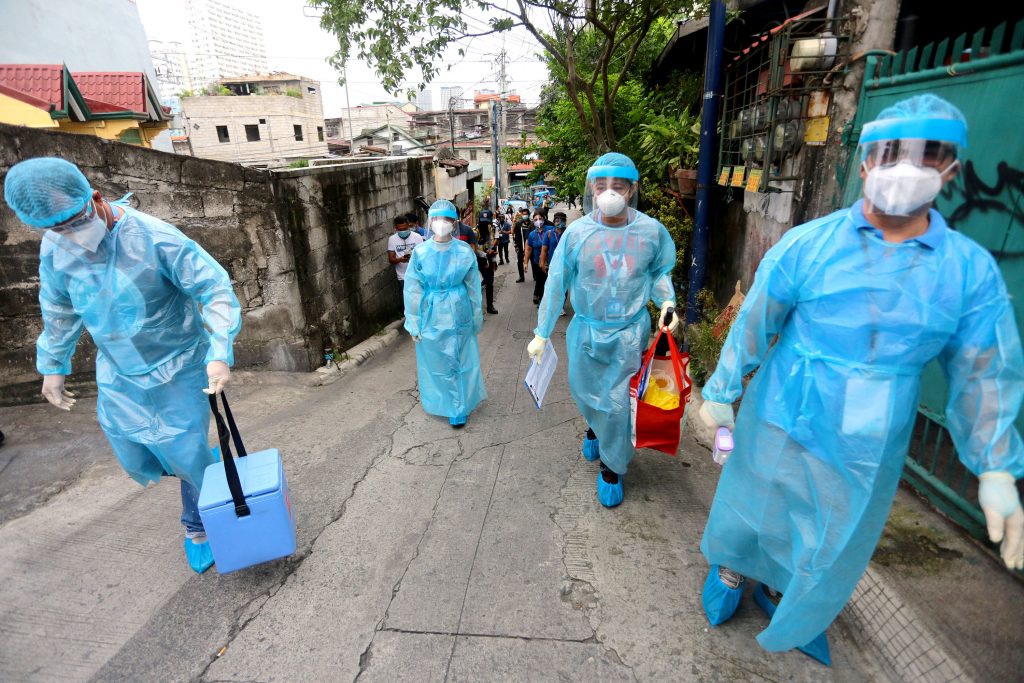
At least two Catholic bishops in the Philippine capital have expressed their willingness to open church facilities as inoculation sites to help the government in its COVID-19 vaccination campaign.
“I have no objection in opening our churches,” said Bishop Honesto Ongtioco of Cubao, adding that there is “ongoing discussion” on how the local Church can work together with the government.
Bishop Broderick Pabillo of the Archdiocese of Manila said he is also open to the idea of using church facilities in the vaccination drive.
On Tuesday, Mayor Joy Belmonte of Quezon City expressed his thanks to the Diocese of Novaliches for allowing the use of church facilities for the purpose.
“With some of our residents expressing hesitancy to be inoculated, the strong support and active participation of the Church in the government’s vaccination drive will definitely help raise the confidence and trust of our people in vaccination,” she said in a statement.
Aside from the facilities, the diocese will also help the Quezon city government in mobilizing its parishioners to take part in the city’s vaccination campaign.
The Diocese of Novaliches also agreed to use KyusiPass, the city’s contact tracing application, in parishes to help the city in its contact tracing efforts.
The Philippines hopes to vaccinate up to 70 million people this year, starting February.
The country’s first vaccine doses will likely come from Pfizer, UK’s AstraZeneca, or Chinese firm Sinovac, Galvez said.
So far, the Philippines has secured 30 million shots from the Serum Institute of India, 25 million from Sinovac, 20 million from Moderna, 17 million from AstraZeneca, and 40 million from the Covax Facility.
The Philippines’ Food and Drug Administration has granted emergency use authority only for Pfizer’s vaccine candidate, as of Tuesday.
A survey done by Radio Veritas 846 noted that seven of 10 Filipinos will consider the safety of whatever coronavirus vaccine available before deciding to be vaccinated.
The survey results, which were released on January 26, noted that 67 percent of respondents answered “safety” when asked about their “primary consideration” when deciding whether or not to be vaccinated.
Consideration of the vaccine’s efficacy followed at 17 percent, then country of manufacture at eight percent, and testimony of early users at six percent.
Source: Licas Philippines
0 Comments